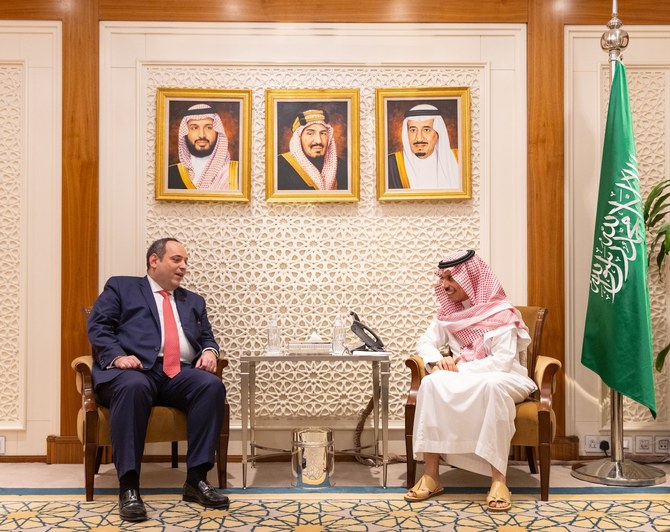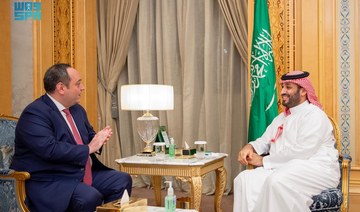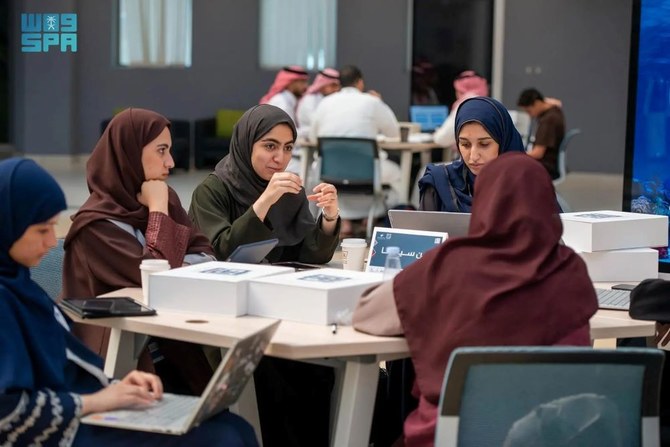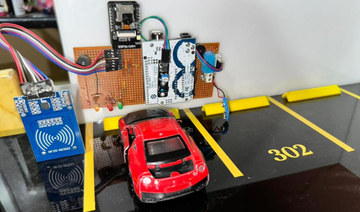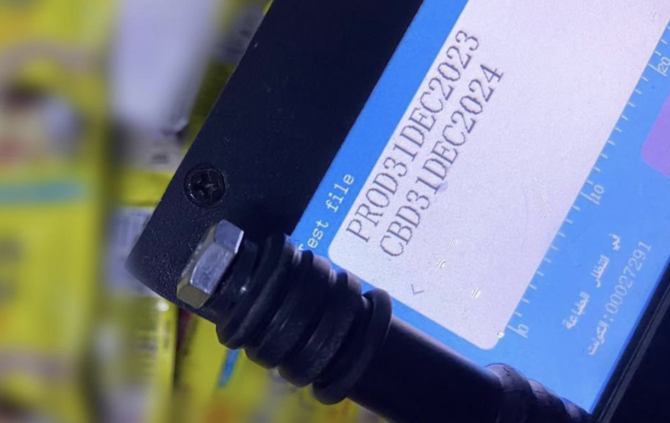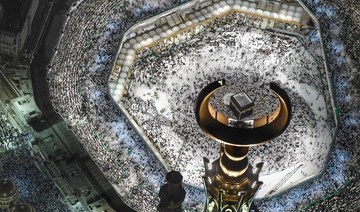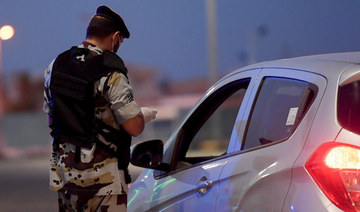JEDDAH: A burqa is used on a falcon's face to cover its eyes as sight is their strongest sense.
The peregrine falcon is the most predatory aerial bird of all falcon subspecies.
Falconry as a traditional sport has become embedded in various cultures worldwide, the result of being practiced globally for 4,000 years. It is a complex and immersive sport, yet it is not indigenous to one community, people, or territory.
In Dec. 2016, and under the Convention for Safeguarding of the Intangible Cultural Heritage, UNESCO adopted falconry as a living human heritage.
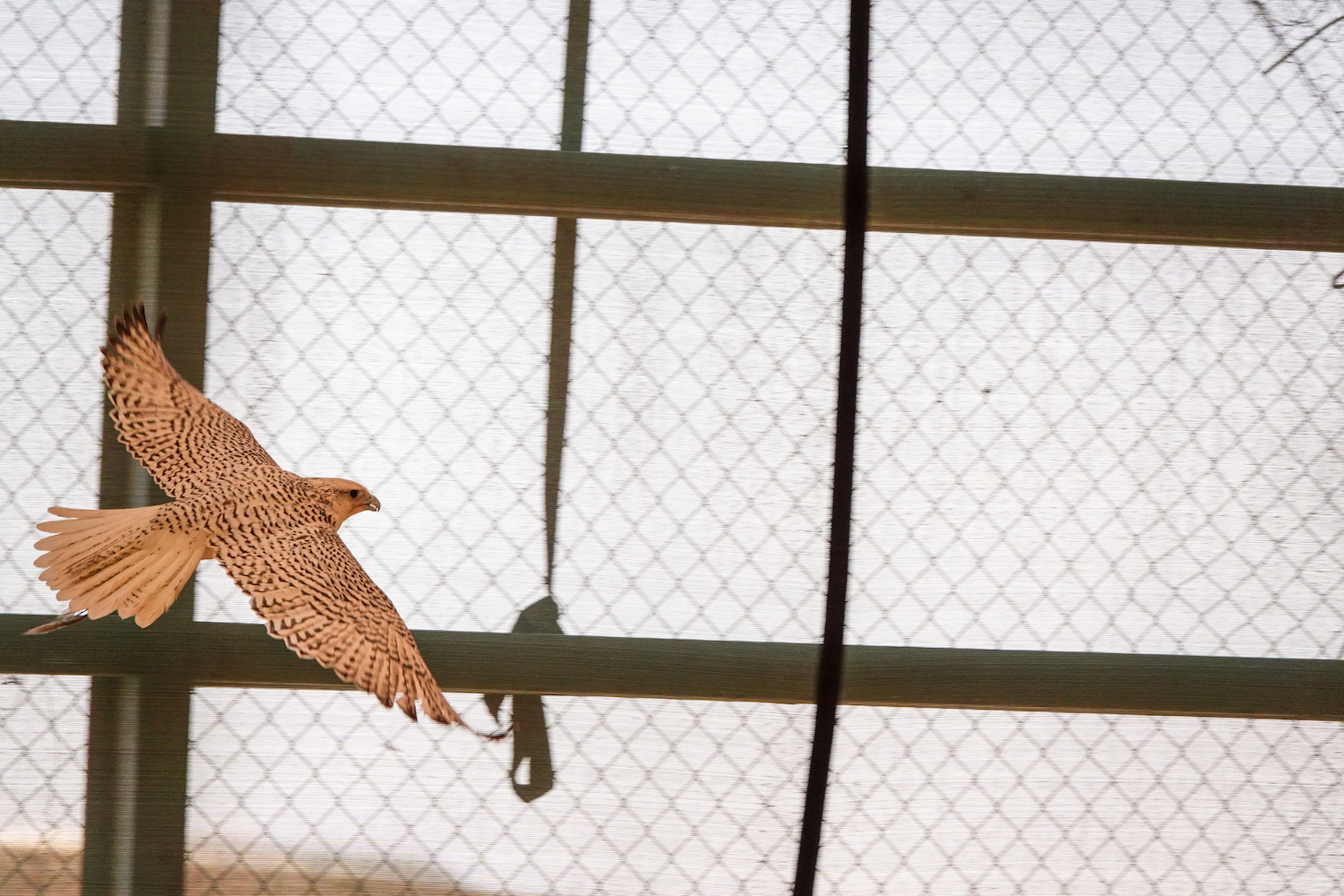
Al-Nadir for Falcons opens its doors to the public for an immersive falconry experience. (AN photo by Huda Bashatah)
According to UNESCO's Intangible Cultural Heritage list, social practices, traditional craftsmanship, a skill set, and knowledge that communities share may enable them to be part of global preservation efforts, as is the case with falcons and falconry as a sport.
This list includes not only Arab countries like Saudi Arabia and Qatar, but Spain, Italy, South Korea, Hungary and more.
HIGHLIGHTS
• In 2019, the annual King Abdulaziz Falconry Festival was established under the Saudi Falcon Club, creating an international and local arena for falconers to participate in competitions with financial prizes such as Al-Melwah or the 400-m falcon calling, and Al-Mazayen falcon beauty pageant.
• In December 2020, the Kingdom took the initiative to release falcons into the wild where they belonged, taking huge steps to protect wildlife. The program was called Hadad and was launched as the first of its kind in Saudi Arabia. It is supported by the Special Forces for Environmental Security and the National Center for Wildlife Development.
• While hunting has been prohibited in the peninsula since 1975, the traditional sport of falconry and even pageantry continues to thrive and is referred to as ‘the sport of the kings’ by Sultan bin Towais Al-Qahtani, a businessman and expert in the field of falconry.
Falconry has become an international cultural symbol and, recently, Saudi Arabia has seen great strides in the regulation and preservation of the sport's heritage.
The history of falconry training in the Kingdom originates in the Arabian Peninsula from the roots of Bedouin heritage of hunting with falcons.
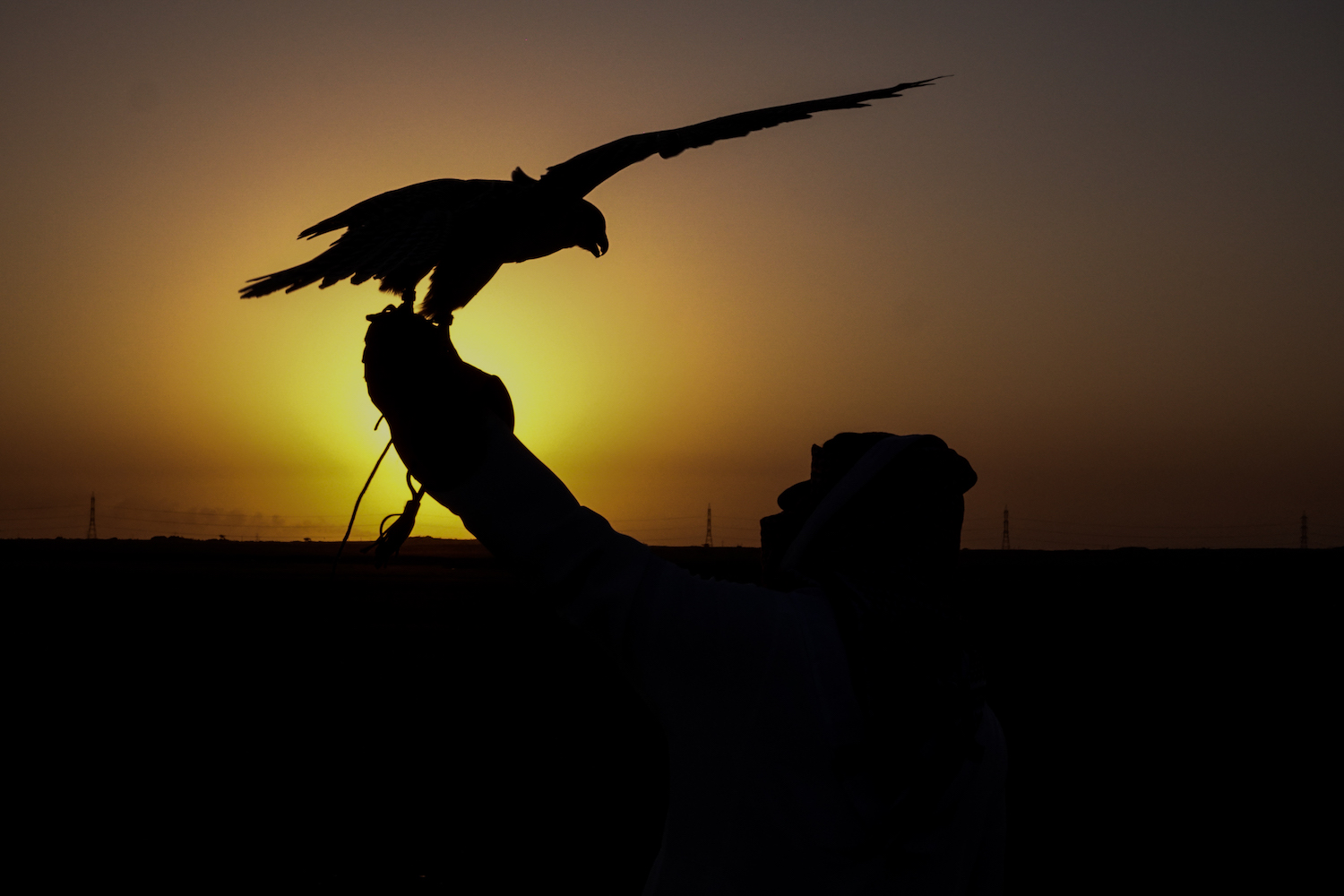
Al-Nadir for Falcons opens its doors to the public for an immersive falconry experience. (AN photo by Huda Bashatah)
In Dec. 2020, the Kingdom took the initiative to release falcons into the wild where they belonged, taking huge steps to protect wildlife.
The program was called Hadad and was launched as the first of its kind in Saudi Arabia. It is supported by the Special Forces for Environmental Security and the National Center for Wildlife Development.
Falconry is the hobby and sport of kings, with a historical depth in Saudi culture and a passion for preserving them comes with the rich cultural heritage that has been passed down through generations.
Sultan bin Towais Al-Qahtani, Businessman and expert in the field of falconry
In 2019, the annual King Abdulaziz Falconry Festival was established under the Saudi Falcon Club, creating an international and local arena for falconers to participate in competitions with financial prizes such as Al-Melwah or the 400-m falcon calling, and Al-Mazayen falcon beauty pageant.
The third KAFF, held at the headquarters of the SFC in Riyadh, attracted international participants and 2,110 falcons.
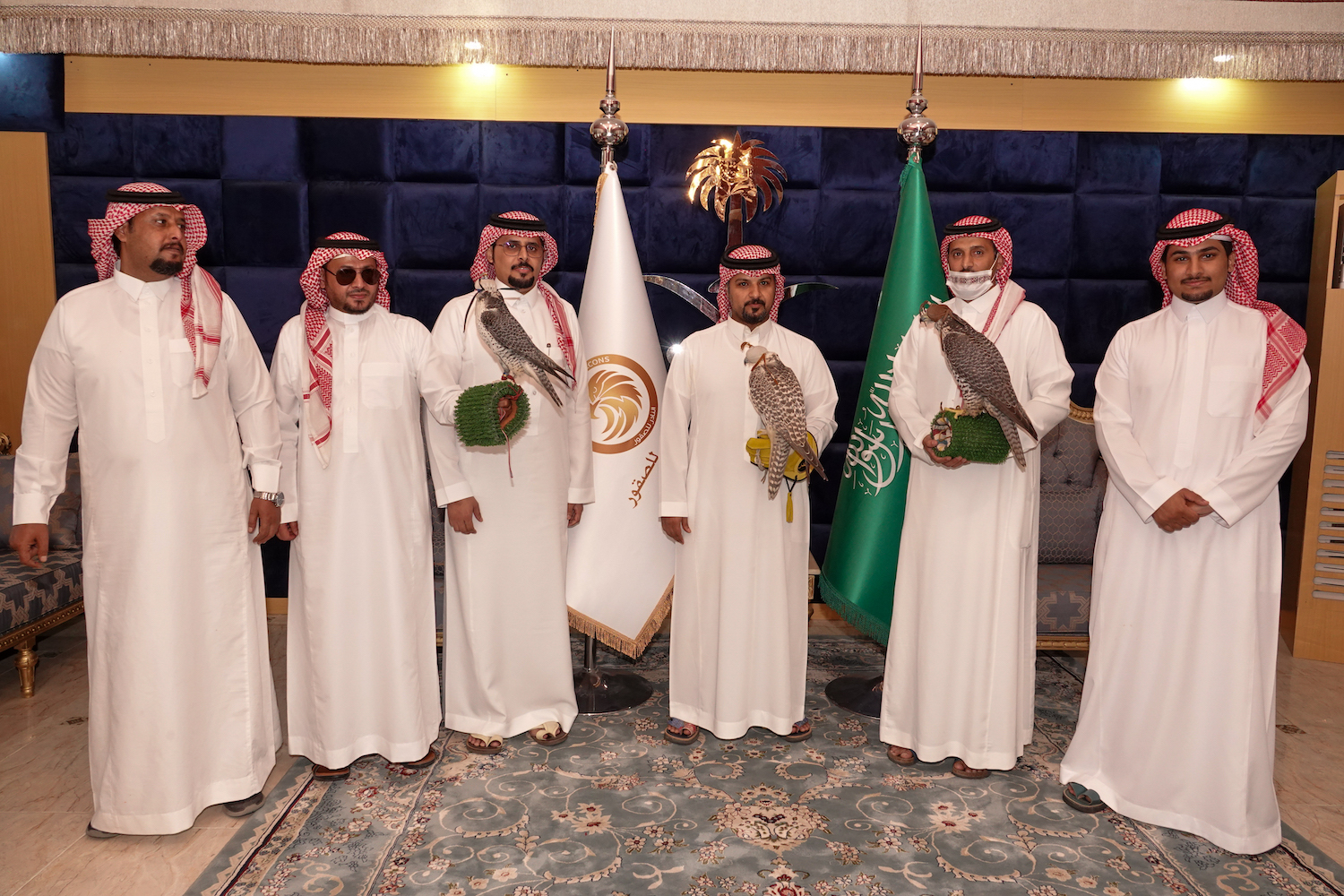
Al-Nadir for Falcons opens its doors to the public for an immersive falconry experience. (AN photo by Huda Bashatah)
While hunting has been prohibited in the peninsula since 1975, the traditional sport of falconry and even pageantry continues to thrive and is referred to as “the sport of the kings” by Sultan bin Towais Al-Qahtani, a businessman and expert in the field of falconry.
Four years ago, Al-Nadir For Falcons opened its doors to the public as an all-round center for auctioning, raising, training, producing, and hospital care for falcons.

Al-Nadir for Falcons opens its doors to the public for an immersive falconry experience. (AN photo by Huda Bashatah)
The center was founded in 2017 by Khalid bin Towais Al-Qahtani, Sultan bin Towais’ older brother.
“The center first started off as a hobby, a traditional one if I may say, until we developed it into a project that was integrated into a complete and trusted care and training center for falcons and falconers,” said Al-Qahtani.
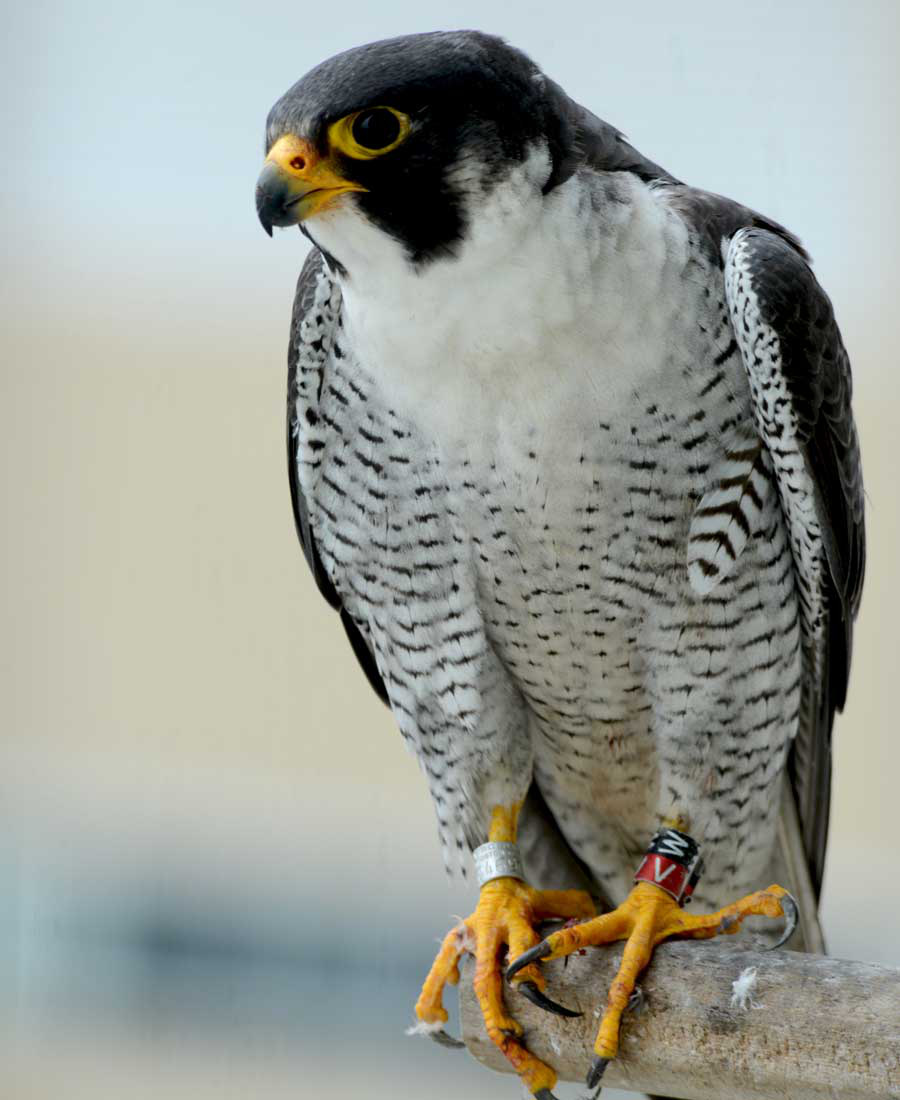
The peregrine falcon is the most predatory aerial bird of all falcon subspecies.
Al-Qahtani told Arab News that the center provided educational training services for all levels of falconers, whether they were professionals or amateurs, and included some alternative medicine treatments by experts and falconers who were specialists in the field.
“We as a center participated in several local and international competitions and festivals, such as our participation in the 89th and 90th National Day, and joined Saudi Airlines in filming a video clip about the summit. We also participated in the third edition of the KAFF, covered S’hail Katara International Hunting and Falcons Exhibition in Qatar, and the Abu Dhabi International Hunting and Equestrian Exhibition in the UAE,” said Al-Qahtani when asked about the center's active participation in falconry festivals and activities.
HIGHLIGHT
A burqa is used on a falcon’s face to cover its eyes as sight is their strongest sense.
Al-Qahtani won first place in the Riyadh Season Cup Al-Mazayen competition and fourth place in KAFF’s Al-Mazayen.
But this center is not the only one in the Kingdom that produces and breeds falcons.
“There are special centers for local production, and we saw their production this year at the international auction, where they achieved great success,” Al-Qahtani said. “The local production also participated in Al-Melwah competition and achieved records in Al-Mazayen competition, achieving first place in this competition. We are proud of this national achievement, yet there are currently no official centers from the state, but many founded by citizen falconers.”
When asked if anyone could acquire a falcon, Al-Qahtani said it was possible for everyone to acquire this bird.
“It is important to mention that the SFC provided us with many services to serve this field and in the preservation of this deep-rooted heritage in terms of holding competitions, facilitating the procedures for acquiring falcons, holding annual auctions for migratory falcons that are offered locally and internationally for external farms and falconers. There also exists an annual exhibition in Malham in Riyadh.
“Falcons are scavengers and quite vicious birds, yet coexistence can occur between humans and falcons, where a bond can be created, and a relationship fostered through special training and proper handling.”
He listed the major types of falcons or subspecies: Gyr, shaheen, peregrine, grey. The differences between these falcons are their size, shape, and color, where each category has its own niche.
“Falconry is the hobby and sport of kings, with a historical depth in Saudi culture and a passion for preserving them comes with the rich cultural heritage that has been passed down through generations, prompting the Kingdom of Saudi Arabia to take care of it, document it, and organize it through its development plans and its ambitious strategic Vision 2030, with the goals concerned with developing various aspects of scientific, economic, recreational, and cultural life.”







